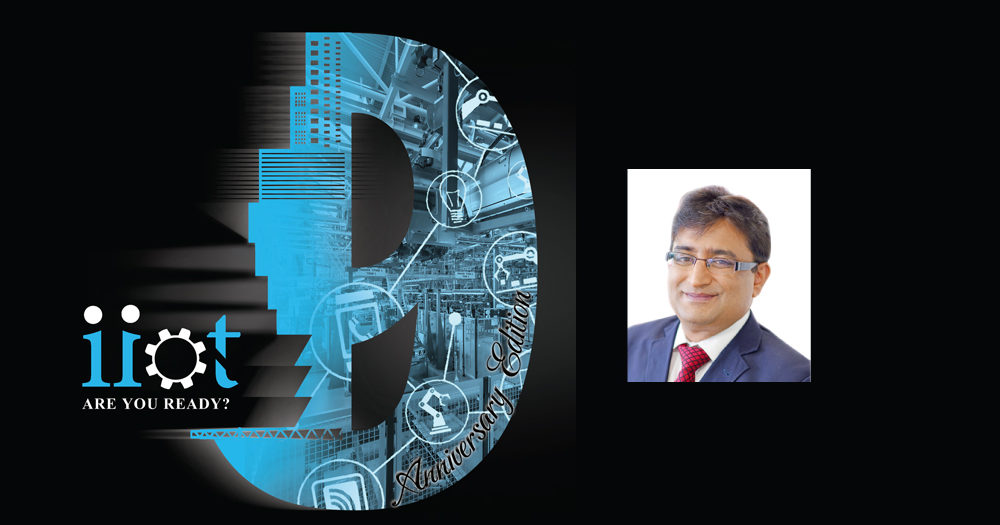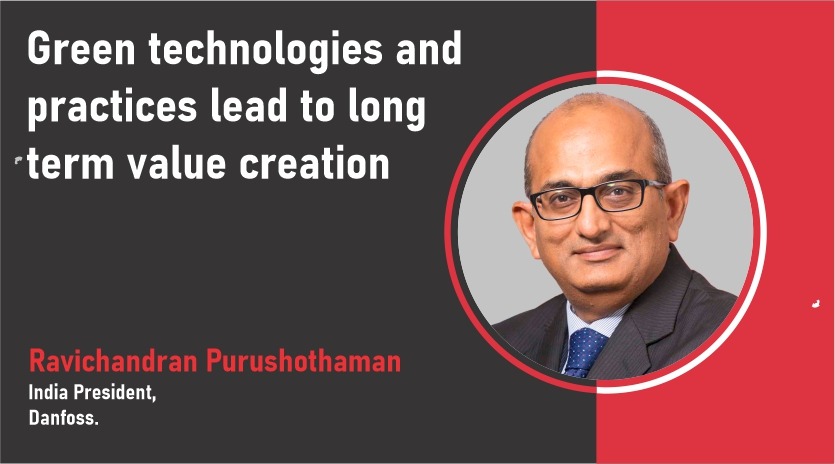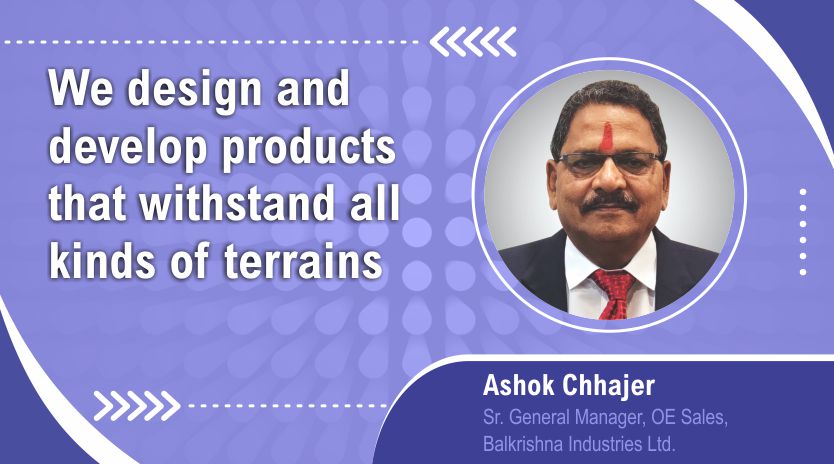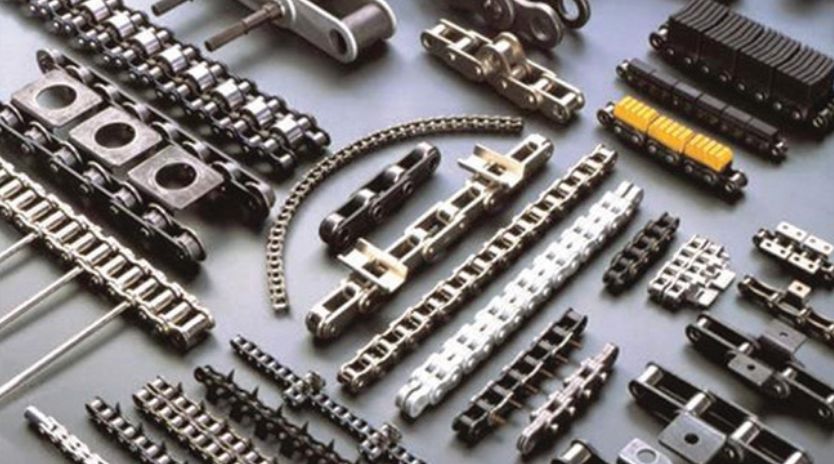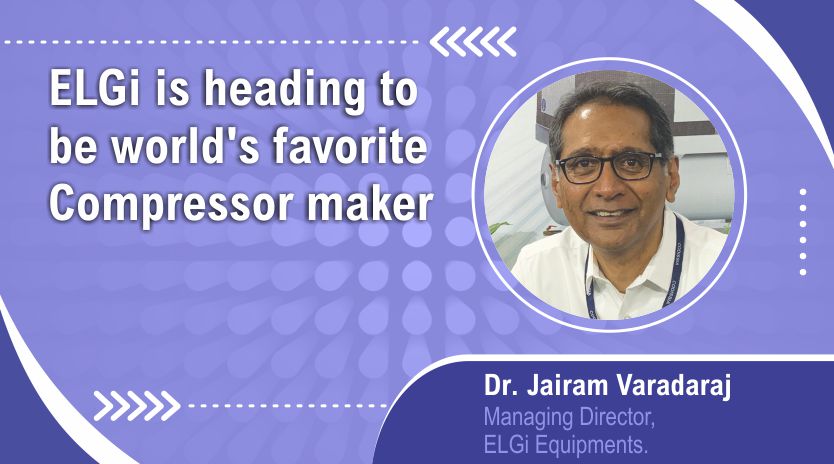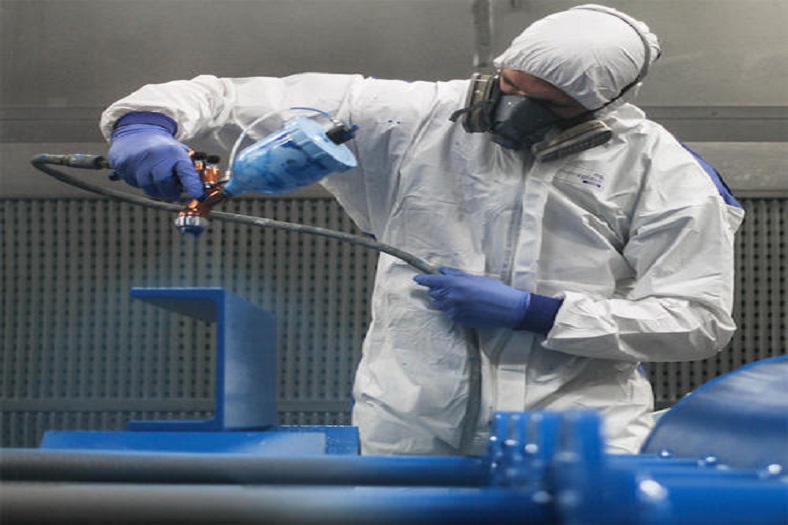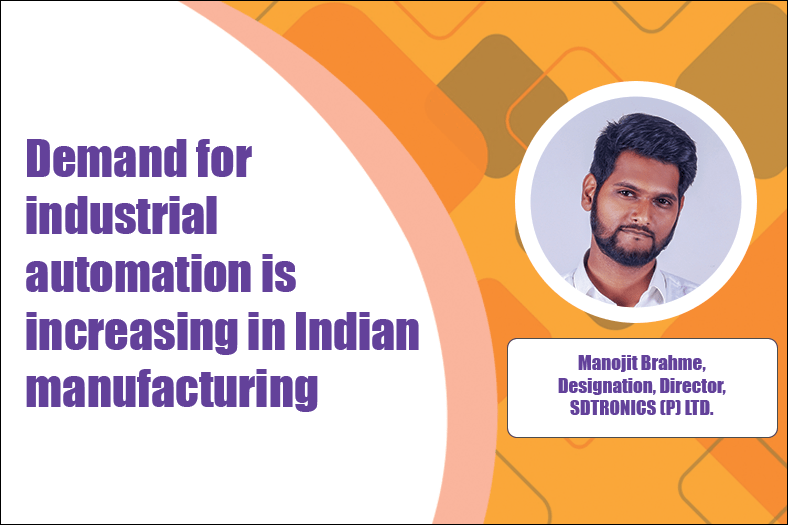Industry 4.0: Digital transformation in manufacturing
June 11, 2018 5:46 pm
Bappa Bandyopadhyay,
Director Operations and Projects, Henkel Adhesives Technologies India
Today IIoT can establish better lines of command, eliminate machine downtime, increase operational efficiency, eliminate waste, provide cross channel visibility into inventories, optimise supply chain, predict issues and improve quality.
Industry 4.0 will enable a transformational change
Gone are the days when machines were completely dependent on manual interventions to run and monitor them. The automation revolution of the last century ensured reduced manual intervention to run machines. Bappa Bandyopadhyay, Director Operations and Projects, Henkel Adhesives Technologies India Pvt Ltd, says, “The advent of “Industrial Internet of Things” (IIoT) changed the game completely. Besides providing visibility on process and condition monitoring of machines, it allows central connectivity to a server. This facilitates correlation of signals from devices, which can be analysed and used to make intelligent predictions and provide actionable insights.”
He explains, When we manufacture adhesives, it is like cooking a dish, where the outcomes are directly dependant on the ingredients and method of cooking, timing etc., and here is where smart factories come into play. The smart factories enable prediction of the quality of the output, drastically reducing errors caused due to human intervention. They also eliminate the need for quality checks, reducing waste of all forms; thereby making the manufacturing process more efficient.
Bandyopadhyay adds, “Today IIoT can establish better lines of command, eliminate machine downtime, increase operational efficiency, eliminate waste, provide cross channel visibility into inventories, optimise supply chain, predict issues and improve quality.”
It is believed that the 4th industrial revolution or Industry 4.0 adoption will enable the sunrise sector to contribute atleast $100bn to the GDP every year. Industry 4.0 will enable a transformational change in the way companies work.
Industries that will drive IIoT adoption
The company has seen IIoT adoption by several industries and they believe that the traditional adopters such as manufacturing, automotive, transportation, energy, oil and gas and healthcare will continue to drive this adoption with the advent of wearables, Artificial Intelligence and virtual reality. Today, connected cars are a reality; another area is consumer electronics as consumers overcome the initial inertia towards buying connected refrigerators or air conditioners. From a healthcare perspective, connecting pacemakers and other medical devices to the internet benefits patients by providing more data to doctors to improve diagnosis and quality of treatment.
Henkel’s preparedness in the area of IIoT
Henkel realised that the common weakness of shop-floor management is that process and operational KPIs are not available in a transparent and instantaneous manner. This masks process inefficiencies as processes are being managed in multiple environments e.g. spreadsheets, Lotus Notes databases, web tools and non-integrated systems including DCS/PLC systems; thus generating information silos. Bandyopadhyay informs, “We decided that we wanted to achieve operational excellence by bringing all systems onto one standardised platform to enable benchmarking, eliminating waste, increasing agility and attaining manufacturing maturity.”
He further adds, “Towards this end, we are setting up a smart factory at Kurkumbh near Pune, which will have a fully integrated environment from vendor to customer. The factory will provide a seamless and transparent view of the entire process right from the receiving gate to warehousing, SHE (Safety, Health and Environment), manufacturing, quality, maintenance, packaging, storage and shipping. Thus, ensuring that we run a lean operation.”
Henkel’s experience across global sites has shown an improvement of at least 10-15 per cent reduction of cycle times, greater cost savings and a huge reduction in rejection of batches and manufacturing ‘right first time’. The smart factory is the way to deliver added value to customers. Very soon this will not only be a USP but a qualifier to meet customer requirements while closing the gap to being the benchmark in safety, quality, service, productivity and cost.
Cookie Consent
We use cookies to personalize your experience. By continuing to visit this website you agree to our Terms & Conditions, Privacy Policy and Cookie Policy.



